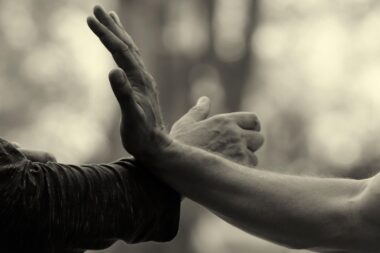How Kabaddi Promotes Teamwork and Coordination
Kabaddi is a dynamic team sport that emphasizes the importance of teamwork and coordination among its players. The game’s unique blend of strategy, communication, and physical prowess makes it a prime example of how collective effort results in success. In Kabaddi, players engage in a fierce battle of skills, where each player’s contributions significantly impact the team’s overall performance. As teammates prepare to tackle opponents, they learn to trust each other’s instincts and capabilities, fostering a sense of camaraderie and mutual respect. Effective communication on the court is crucial as players must constantly signal their intentions, ensuring seamless transitions during raids and defenses. Moreover, every successful maneuver is a testament to the meticulous planning and collaboration that underpins the sport. The essence of teamwork is further reinforced by the strategic formations and plays designed for defense or attack. As players adapt to the ever-changing dynamics of the game, they develop essential communication skills that carry over into daily life. This combination of sporty interaction and collaboration ultimately nurtures strong bonds among team members, making Kabaddi a perfect platform for promoting these invaluable abilities.
Kabaddi’s structure inherently promotes teamwork through its traditional gameplay, where each match involves two teams of seven players. Each person’s roles in the team are clearly defined, creating a mechanism for effective cooperation. During matches, players are required to excel in their specific roles, whether raiders or defenders, thus learning the importance of specialization in teamwork. The raider’s objective is to infiltrate the opponent’s half, touch as many players as possible, and return safely. This task becomes easier when teamwork is strong, as defenders collaborate to protect each other. Players repeatedly practice scenarios that require flexible positions and quick responses, adapting to their teammates’ movements. The focus on strategies that leverage individual strengths ensures that every player feels valued, which enhances motivation and unity. As they train together, players learn to anticipate each other’s actions, minimizing mistakes and improving synergy. These connections deepen their understanding of each other’s strengths and weaknesses. Moreover, Kabaddi teams celebrate victories together, magnifying the emotional rewards of teamwork and enhancing their resolve to succeed collectively. In this context, players often become friends outside of the sport, further emphasizing the lasting impact of teamwork within Kabaddi.
The Role of Communication in Team Sports
Communication takes center stage in Kabaddi and significantly contributes to effective teamwork. Players must develop verbal and non-verbal cues to signal intentions during critical moments of the game. For instance, a player may shout a code word to indicate that they are preparing to perform a raid, allowing teammates to position themselves accordingly. This intuitive communication fosters a synchronized effort that optimizes the team’s overall performance. Moreover, during defensive plays, players must communicate constantly to ensure they cover all angles, thereby preventing opponents from breaking through their defenses. In this high-pressure environment, the ability to convey messages quickly and clearly is paramount. Kabaddi players learn to embrace constructive feedback as an essential part of their development, encouraging an environment where team members feel comfortable sharing their thoughts. This openness not only enhances performance but also strengthens interpersonal relationships within the team. Ultimately, strong communication skills learned in Kabaddi extend beyond the playing field, benefiting players in various aspects of life, including academic and professional settings. Thus, the sport serves as a powerful tool for nurturing effective communication skills.
In addition to fostering communication, Kabaddi helps players hone their coordination skills through practiced drills and simulations. During training sessions, players engage in intricate physical activities designed to enhance their reflexes, speed, and coordination with teammates. For example, players may practice coordinated movements, forming a cohesive blockade while attempting to capture an opponent. This level of teamwork requires players to synchronize their movements, which leads to improved coordination both as individuals and as a unit. Drills often include exercises targeting specific plays, enabling players to react seamlessly while working alongside their teammates. These routines are further enhanced by incorporating varied playing styles, which keep players adaptable and responsive. The development of coordination skills is crucial, especially in high-stakes situations where quick thinking and execution are vital. The intensity of training fosters resilience and adaptability, as players are empowered to rely on one another during moments of duress. In this manner, players continually refine their ability to work harmoniously together, ultimately cultivating a high degree of coordination that is essential for success in any team endeavor.
Building Trust Through Team Challenges
Trust is an essential component of teamwork, especially in a fast-paced sport like Kabaddi. Players face numerous challenges during games that require them to rely on their teammates completely. For instance, in a raiding maneuver, a player must trust the defenders to safeguard their back while they attempt to score points against the opposition. This inherent level of reliance creates a strong bond and encourages mutual respect among players. Additionally, teams often participate in various training camps that include trust-building exercises designed to strengthen interpersonal relationships further. These activities enable players to delve deeper into understanding each other, both on and off the field. When players build trust, they are more likely to communicate openly and take calculated risks during gameplay. A team that trusts one another will react instinctively, significantly reducing response time during play. Trust fosters a culture of accountability, where players feel empowered to hold one another responsible for their actions. The development of trust within a Kabaddi team ultimately translates into increased confidence and a collective commitment to succeed as a unit, showcasing the powerful influence of trust in sports.
Moreover, Kabaddi encourages players to develop strategic thinking as a fundamental aspect of teamwork. Team members often gather to analyze game footage, identify strengths and weaknesses, and devise tactics that can improve performance. This practice fosters a culture of collaboration, as every player contributes valuable insights that can guide their strategy. The involvement of each team member ensures that all voices are heard, creating an environment of inclusivity and shared responsibility for outcomes. This strategic analysis extends beyond individual performance, allowing players to develop a holistic understanding of their opponents and the game itself. By studying various strategies, players learn to anticipate their opponents’ moves, giving them an edge in competitive scenarios. The emphasis on strategic thinking cultivates critical thinking skills, encouraging players to make informed decisions under pressure. Furthermore, the adaptability required to revise tactics in real-time enhances problem-solving abilities, as players must respond dynamically to unpredictable circumstances. Thus, through strategic thinking in Kabaddi, teamwork and collaboration are not only essential components of the game but also contribute to personal growth and development for each player.
The Impact of Team Bonds Beyond the Game
The intense experiences shared during Kabaddi training and matches often lead to deep friendships among team members. These bonds are crucial, as they create a supportive environment both on and off the field. The relationships formed in Kabaddi extend beyond the game’s strategies and tactics; they foster emotional connections that can positively influence players’ lives. As teammates work together to achieve common goals, they celebrate victories and support each other through defeats, which strengthens their bonds even further. This unity is essential for maintaining morale and motivation, especially during tough matches or seasons. The emotional support that players provide to each other translates into a healthier team dynamic, where individuals feel valued and understood. Consequently, these connections help build a resilient team culture that can weather challenges. Ultimately, the camaraderie established in Kabaddi not only enhances performance during games but also enriches players’ personal lives. Teammates often remain lifelong friends, demonstrating that the essence of teamwork in Kabaddi extends far beyond the sport itself, creating valuable friendships shaped by shared experiences and a mutual passion for the game.
In conclusion, Kabaddi serves as a remarkable vehicle for promoting teamwork and coordination among players. The sport’s design necessitates constant communication, trust, and strategic thinking, principles that seamlessly integrate into players’ everyday lives. Various elements of Kabaddi, such as specialized roles and trust-building exercises, foster strong interpersonal bonds that further enhance cooperation among teammates. As a result, players develop not only as athletes but also as individuals capable of thriving in challenging situations. The teamwork cultivated in Kabaddi offers a profound understanding of the significance of collaboration, enabling players to navigate the intricacies of life beyond the field. Furthermore, the valuable skills acquired through participation in this unique sport—communication, resilience, and adaptability—prepare players for success in various future endeavors. Therefore, Kabaddi is not just a game of physical endurance; it is a comprehensive experience that builds character through collective effort. As players continue to develop their skills and camaraderie, they exemplify the true essence of teamwork, a lesson that resonates deeply both in sports and throughout life.





